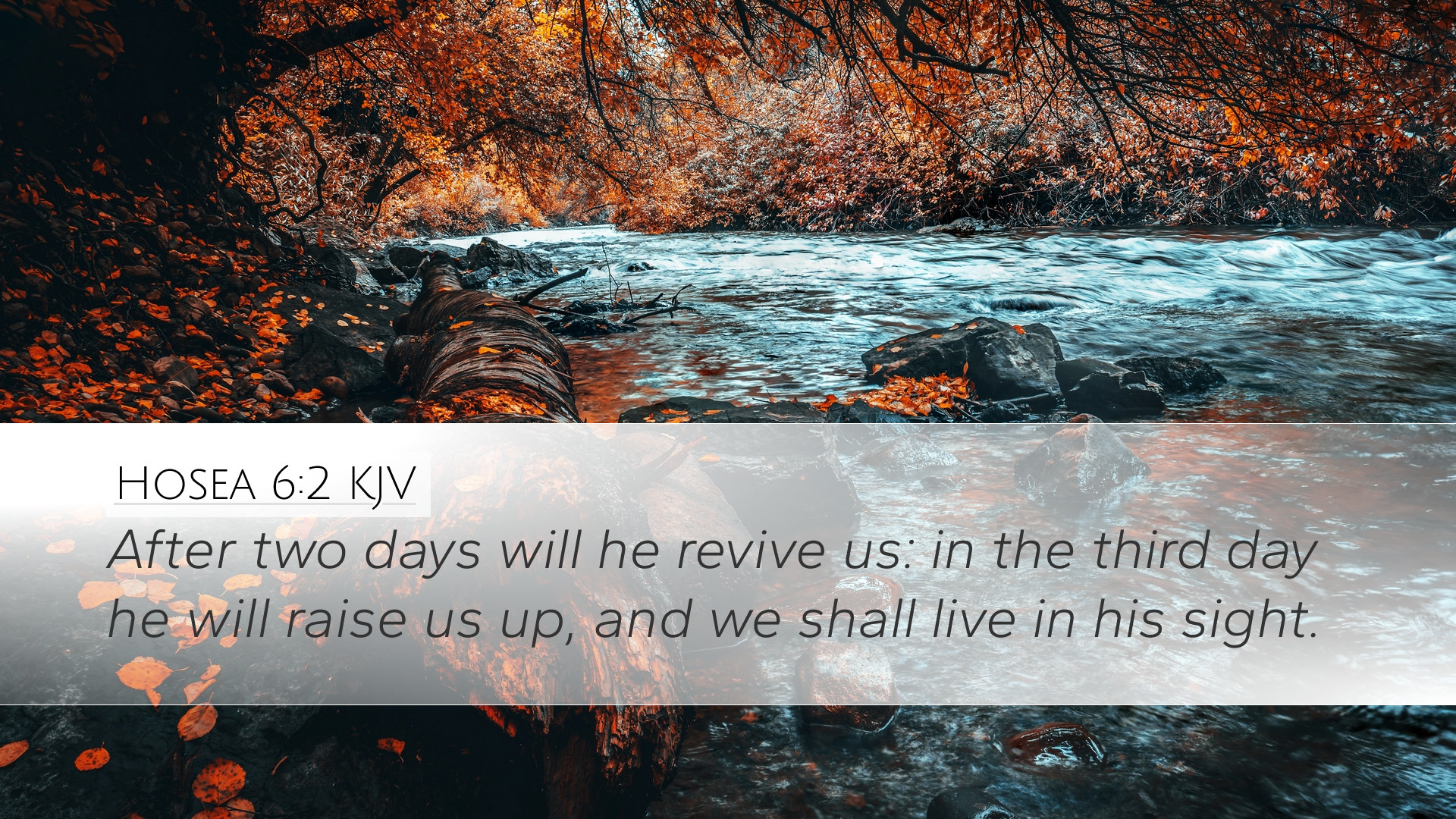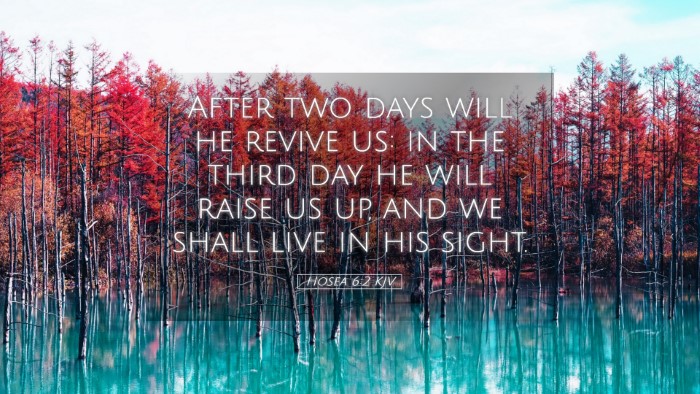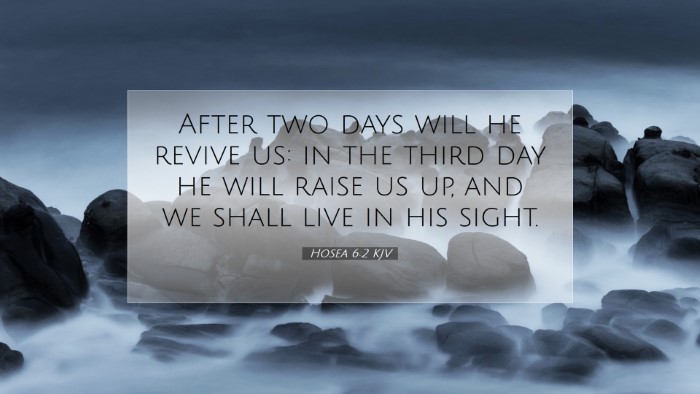Old Testament
Genesis Exodus Leviticus Numbers Deuteronomy Joshua Judges Ruth 1 Samuel 2 Samuel 1 Kings 2 Kings 1 Chronicles 2 Chronicles Ezra Nehemiah Esther Job Psalms Proverbs Ecclesiastes Song of Solomon Isaiah Jeremiah Lamentations Ezekiel Daniel Hosea Joel Amos Obadiah Jonah Micah Nahum Habakkuk Zephaniah Haggai Zechariah MalachiHosea 6:2
Hosea 6:2 KJV
After two days will he revive us: in the third day he will raise us up, and we shall live in his sight.
Hosea 6:2 Bible Commentary
Commentary on Hosea 6:2
“After two days will he revive us: in the third day he will raise us up, and we shall live in his sight.” - Hosea 6:2
Introduction
This verse from Hosea speaks profoundly about revival and restoration—a theme that resonates powerfully in the hearts of believers. The promise of renewal and life in the presence of God forms a cornerstone of the hope offered to Israel amid their spiritual decline.
Contextual Background
The book of Hosea is set in a tumultuous period for Israel, characterized by:
- Spiritual adultery and idolatry.
- Covenant unfaithfulness.
- Impending judgments and societal decay.
Hosea's prophetic ministry is a call back to the steadfast love of God amidst the people's rebellion.
Analysis of Key Phrases
Hosea 6:2 is packed with theological significance, particularly when dissecting its various phrases:
- “After two days will he revive us”:
Matthew Henry emphasizes that the concept of "two days" symbolizes a brief but meaningful period during which God prepares His people for revival. The notion reflects a sense of immediacy, indicating that God's intervention is near.
- “In the third day he will raise us up”:
Albert Barnes notes the association of the "third day" with resurrection and renewal. This phrase resonates with the New Testament's foreshadowing of Christ’s resurrection, suggesting not just revival but ultimate restoration to life.
- “And we shall live in his sight”:
Adam Clarke points out that living in God's sight reflects a deep, covenant relationship characterized by intimacy and obedience. This profound awareness of God’s presence indicates a transformative state that surpasses mere survival.
Theological Insights
- Divine Mercy and Restoration:
The overarching theme of God's mercy permeates this verse. Despite Israel's sin, God initiates action for their restoration. This underscores the biblical narrative that emphasizes God’s willingness to forgive and revive His people when they turn back to Him.
- The Role of Repentance:
Henry correlates revival with genuine repentance. He stresses that revival is contingent upon acknowledging sin and returning to the Lord, a process that is often followed by times of distress and searching.
- Prophetic Foreshadowing:
Many scholars note the prophetic layers within Hosea's declaration, particularly in its allusion to Christ’s resurrection. This connection highlights continuity between the Old and New Testaments, emphasizing God’s eternal plan for redemption.
Application for Today
For pastors, students, theologians, and Bible scholars, Hosea 6:2 presents several contemporary applications:
- Hope in Crisis:
Just as Hosea offered hope to a disheartened nation, today's believers can find encouragement in God’s promise of revival. In times of spiritual drought, this verse reassures us that there is a path to restoration.
- Calls for Repentance:
The process leading to revival implicates personal and communal repentance. Church leaders can use this verse to foster environments where confession and return to God are encouraged, reinforcing the need for authenticity in faith.
- Living in God’s Presence:
As the verse concludes with the promise to “live in his sight,” modern believers are reminded of the importance of cultivating a constant awareness of God’s presence, enabling them to thrive spiritually and bear witness to others.
Conclusion
Hosea 6:2 encapsulates vital theological truths regarding God's nature, the hope of restoration, and the call to revival. It invites reflection on God's mercy and encourages a repentance that leads to renewed life in His presence. As we unpack this verse, may we remember that God's desire is for His people to experience revival, both in the context of ancient Israel and in our modern lives.


